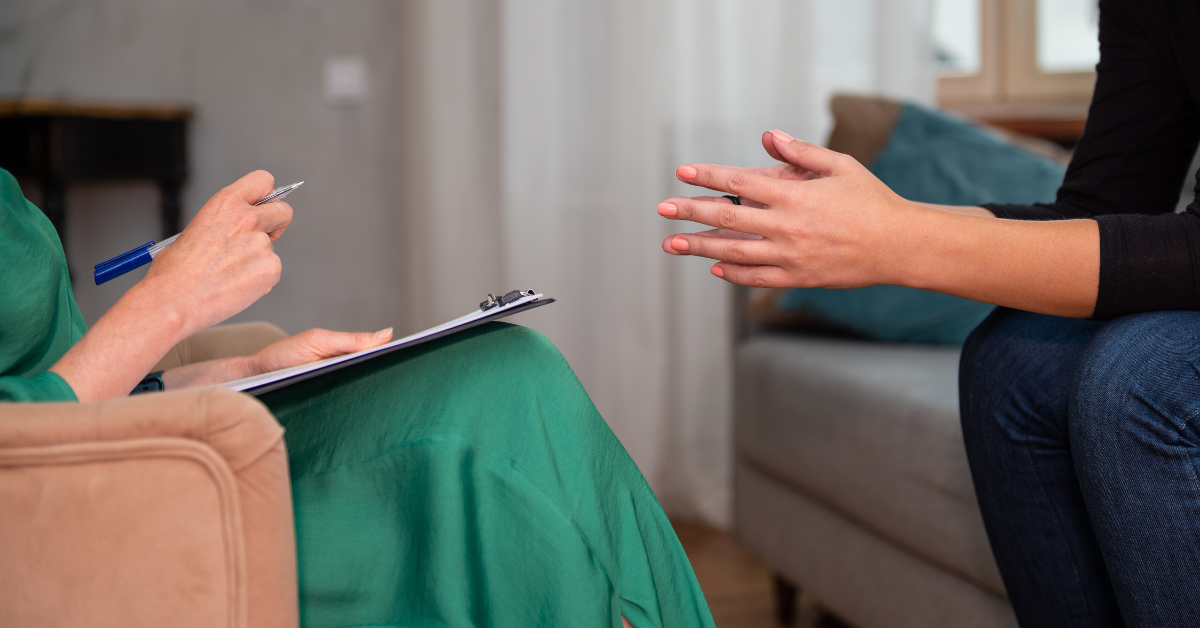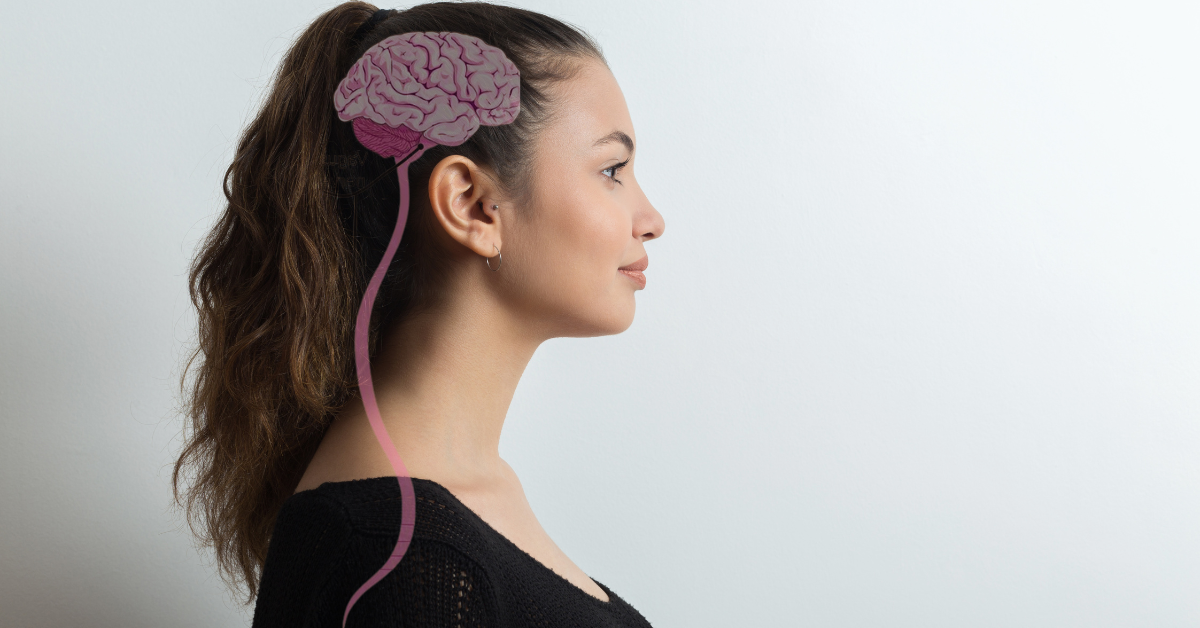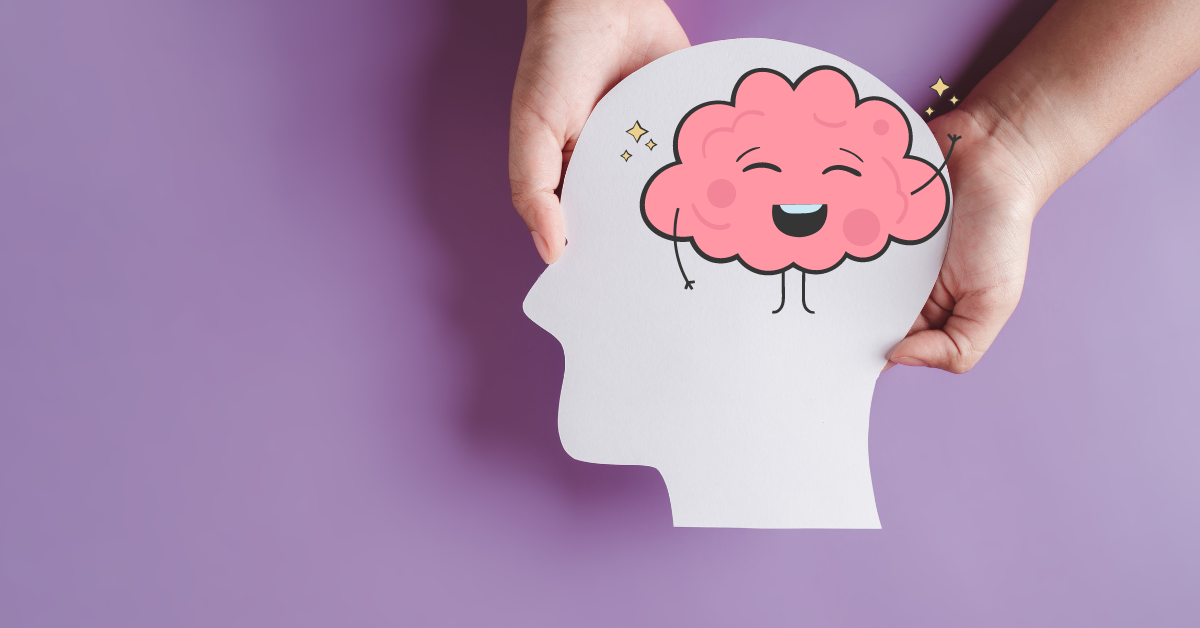119. ICBT as an Alternative to ERP from the Client’s Perspective with Crystal Propes
In this week’s episode, Carrie interviews Crystal Propes about her journey with ERP therapy and her transition to Inference-Based Cognitive Behavioral Therapy (ICBT), highlighting its effectiveness from the client’s perspective.
Episode Highlights:
- Insights into Crystal Propes’ personal journey with OCD, including her experiences with various treatment approaches.
- The principles and techniques of ICBT.
- How ICBT differs from ERP therapy in addressing mental compulsions and providing functional certainty without distress.
- Personal examples of applying ICBT techniques in real-life situations
Episode Summary:
Welcome to Christian Faith and OCD episode 119! I’m Carrie Bock, a licensed professional counselor from Tennessee, and today I’m thrilled to have Crystal Propes with us. Crystal and I connected on Instagram, and I’m excited to share her story with you.
In this episode, Crystal dives deep into her personal journey with OCD and her experience with inference-based cognitive behavioral therapy (ICBT). We often feature professionals discussing therapy techniques, but it’s equally valuable to hear personal stories. Crystal’s experiences underscore that if one treatment doesn’t work for you, it’s okay—there are other options out there.
Crystal’s journey with OCD began in childhood, with symptoms manifesting as early as age three. From emetophobia to severe anxiety during her school years, her story is a powerful reminder that OCD can evolve and change over time. Despite her struggles, Crystal persevered and eventually sought therapy. She initially tried exposure and response prevention (ERP) therapy but found it overwhelming and not suited to her needs. Thankfully, Crystal later discovered ICBT, which resonated more with her and helped her focus on managing mental compulsions and staying present.
Tune in to hear Crystal’s full story and insights. Remember, if one treatment doesn’t work, it’s not the end of the road. There’s always hope and help available. Don’t give up!
Related Links and Resources:
www.instagram.com/functionallyocd/
Explore Related episode:
Transcript
Welcome to Hope for Anxiety and OCD episode 119. I’m here today with another personal story of anxiety. I am your host, Carrie Bock, a licensed professional counselor in Tennessee, and here I have Crystal Propes. We actually met on Instagram, which was really fun, and I just had reached out to her and she agreed to be on the show.
Crystal has been posting a lot of information about ICBT, which is inference-based cognitive behavioral therapy, and just her perspective of it from the client that I feel is very helpful. Sometimes we have different types of shows. Sometimes we have shows with different professionals who tell us about the nitty gritty details of specific therapy, but we always find it’s helpful to share personal stories on the podcast of people who have actually been through the struggles and the trials that so many of you have gone through with OCD, and it encourages other people to continue to seek help because we want people to know that there’s hope and there’s help and with our story today, if one treatment in particular doesn’t work for you, that it’s okay to know that there are other treatment options out there for you.
You don’t have to be stuck in a rut. I think a lot of times people feel like I’m the exception to the rule and I’m the one that this therapy is not going to work for and I can’t get help. And then they stop and we just don’t want anybody to stop today. If you hear nothing else from this episode, that’s what I would want you to know from the therapist’s point of view.
_______________________
Carrie: Welcome, Crystal. Tell us a little bit about your story with OCD. How did that start? And when did you notice it showing up? And then when did you realize like, Oh, that’s what this is?
Crystal: My story is a long one. Now that I think back about it, I mean, I didn’t think this hard about it until recently, but now that I think back about it, I knew, like, that it had showed up in childhood, but I wasn’t sure how young.
I think I was three, so, which is very young, right? I’ve lived with this my entire life, but yes, I think I was three. I started my first manifestation of OCD with emetophobia. But I had a lot of other issues with it. I was overwhelmed with big situations. I remember having so much DPDR, like, going, “What’s next?”
The kids are supposed to be excited, but I’m sitting there in silence. My mom’s like, “Are you okay? What’s wrong with you?” And it’s like, “I don’t really know. I just feel overwhelmed.”
I would get really particular about the order of my toys and, like, my toys being played with a certain way and it would give me, like, extreme anxiety to, like, let people borrow books, just all kinds of little things that shouldn’t have caused anxiety that it did now that I look back on it.
I think what really, I would say, like, when my brain broke, even though I definitely had OCD before then, I was 12. I was in 7th grade and I was a teacher’s assistant. for my teacher and so I spent a lot of time alone in her room as one of my electives and I was like grading papers and stuff.
Obviously, being quiet alone gives you so much room for your imagination to run wild and I just remember having this thought, what if you’re terminally ill? What if you have cancer? And then that just latched right on. It’s like, why did I think that? Is God trying to tell me that I have cancer? Is there something wrong with me?
I spent like a long time after that, like terrified and I couldn’t figure out why. I thought I was going crazy and I didn’t want to say anything about it. My mom because I really didn’t know what was going on and I just remember like kind of dealing with that on and off all throughout high school.
I remember seeking reassurance from my mom, like, I’m not going crazy. I’m not crazy. Am I? There’s nothing wrong with me. Just like Googling stuff to make sure I was okay. Lots of rumination, lots of body checking. That’s kind of my experience with like my early OCD and how it started.
Carrie: Those thoughts, you’re just sitting there and then all of a sudden the thought pops in and OCD gets going and you get really latched into that thought and into the meaning of “What does this mean that I’m even having this thought?
What is this saying about me?” Emetophobia, for those who don’t know that are listening, maybe they don’t experience that, is fear of throwing up.
Crystal: It has existed largely in the background for the most of my life. Like, as long as I wasn’t directly exposed to it, I was okay. It didn’t live my life around it.
My OCD has worn many hats over my 30 years with it, and most of them were not aminophobia. Even though I’ve always been aminophobic, again, like, unless directly faced with it, it really didn’t bother me until I had kids, and they’re in school, and they’ve brought home germs, and I’ve been traumatized by it.
But yes before that, it really was mostly other themes that popped up, but now it’s the opposite. Now, all my other themes extremely well, and the am phobia has dug its calls in,
Carrie: It’s interesting how symptoms like this wax and wane over a lifetime. Like you said, sometimes things are really upfront and then, “Okay, I am not as worried about those things,” and then those fall into the background, and because of other life stressors raising young children and bringing home all of the germs, obviously that’s stressful. There’s more fears about getting sick or people in the household throwing up and then you getting sick and throwing up.
Can you walk us through that process a little more? Becaus those were the pieces that caused you to seek out ERP therapy initially.
Crystal: Right. Before I get into that, I wanted to say like, I didn’t realize it was OCD and not generalized anxiety until I was about 18. There’s a gap there though from the time I realized it was OCD at 18, but I didn’t get an official diagnosis until last year at 32, even though I knew what it was.
I didn’t seek out therapy until then because I dealt with it on my own fairly well, even though it was so hard. severe when I was in college, extremely severe, but I ended up seeking out therapy because about two years ago, my kids started bringing home stomach bugs. I was blessed with the fact that my daughter, my oldest never had one until she was five and in public school in kindergarten.
That was the first one we ever had to deal with. Nobody caught it that time. So like, it was traumatizing for like about two weeks until I was sure like, okay, everything’s probably dead. And then I was okay, but then we got another one five months later, and then we got another one five months later. We had like four, and I had two or three of them, back to back to back.
By the time I would get over one, we would get another one, and it was just back to, and the one that took our whole family down, it was extremely traumatic for me. And I think people who don’t have a phobia, It’s hard to explain the level of fear you experience in relation to a true phobia.
Some people never feel that type of fear ever in their life, but if you’ve ever been terrified of something, you have to think of the most scared you’ve ever been in your entire life. Like the scariest possible thing you can think of and being faced with that and having to take care of your kid through that and then having to deal with it yourself.
I’m literally shaking while taking care of my kid. And then I get sick. It’s like the worst I’ve ever felt in my life. All my fears are realized. It’s just as bad as I thought it would be. I am traumatized, truly traumatized from this. I haven’t been officially diagnosed with PTSD, but only because I haven’t been evaluated for it.
We decided to treat the PTSD first, but I’ll get into that a little later on. I was super traumatized. I found that my kids, we started school and my kids, I was just watching them, their every move, hyper-villagently watching them, afraid they were going to fall ill at any second, just anticipating the next bug that I was going to have to deal with.
I was spending every second home with them. It stuck in my own head, ruminating, hypervigilance, my hands crack and bleed, I wash them so much, just like so miserable, even though I was technically functional. I was still taking care of my family, I was still taking care of my kids, I was still sending them to school, they had everything they need, they were fed, they’re happy, but then I’m sitting there playing with them and I’m not present, my brain is miles away.
Carrie: Sure. Did you have a lot of cleaning rituals related to that that got ramped up?
Crystal: I have some. My therapist is big on not telling me what’s a compulsion. He wants me to decide what I think is compulsive. We’ll get into that talking about ICBT therapy a little bit because I distinction between it and ERP that I like.
I’m a compulsive hand washer. I will admit that right away. I feel like if I’m going to touch something that’s going to go into somebody’s mouth, I can’t have touched anything in between. If I wash my hands and then go touch something that’s not food, I have to wash my hands again before I touch food. That’s probably excessive. My hands bleed. I also do some things that may or may not be compulsive. My kids shower when they get home from school, but to be fair, they roll all over the floor at school and floors are gross. And I can’t change their hair. I can change their clothes, but I can’t change their hair.
I also have a tendency to llysol” all their shoes and “lysol” all my car after they get out from school. I have a three year old that like licks everything and puts everything in his mouth. If I didn’t have a three year old that was a germ collector, I wouldn’t be this intense about it. I do have some cleaning things that may or may not be compulsions. The mental compulsions that I have, the hypervigilance, the mental review, the ruminating, they far outweigh the physical ones in, like, time and, like, distress level that they cause.
Carrie: That’s the hard thing that I see a lot of my clients dealing with is okay, you can put the Lysol down and walk away. That may be really hard for some people.
I don’t want to minimize that, or you can tell somebody, “Okay, touch this and then don’t wash your hands,” but you’re always going to have your brain with you and so you have opportunities to ruminate all the time throughout the day. Those are, I think the hardest compulsions to deal with are the mental ones, like you were saying, that makes a lot of sense to me just from talking with my clients, and it makes sense that after seeing your kids be sick so many times, that it became stuck in your brain that am I ever going to get out of this? Is this going to happen again? And then this was terrible, horrible, awful and I’m trying to prevent these types of experiences from happening. It rose to this level of where you decided I need to go to therapy and you had done some research.
I’m assuming like other people have on what type of therapy should you get? If you have OCD. And you found exposure and response prevention. This is the therapy that’s recommended.
Crystal: I knew about ERP for a long time. I have never wanted to try ERP. I have never thought that it would work for my phobia, but I was desperate. I knew about both ICBT and ERP going in. I was struggling to find an ICVT therapist and I was desperate. So I was like, okay, let me try. this therapist that says that they do ERP and CBT and is trauma-informed and see if they can work with me, but I don’t want to do exposure therapy directly related to my phobia.
I went in thinking maybe he can work with me, and he really seemed like he might. He was really nice, good Christian guy from my state. I thought this was going to be a good experience. He had a lot of experience with trauma and stuff and honestly, if he hadn’t been where he was working, I think that he may have been a really good therapist for me, but I felt like being treated as just like a number on a assembly line. “You have OCD, you have ERP. This is exactly how we treat this.” There was no room for my personal experience. We started with it and I just felt like any time he brought up, “okay, this is what we’re going to do.” Make this an exposure or okay, now we’re going to work on a hierarchy. It gave me so much anxiety.
I never felt better after therapy. I always felt immeasurably worse thought of like having therapy was giving me anxiety and it just felt like a bunch of extra work on top of what I was already dealing with. I was like, okay, look, I’m already so exposed to this. I don’t need extra exposure. I’m already so traumatized by this.
I don’t need extra trauma. I don’t want to create a hierarchy of my fears and then you make me work through them because I already faced my worst fear all the time. Like I deal with this all the time. I have three young children in public. It really wasn’t a good fit. So I talked to my friend and was like, Hey, can you find me an ICBT therapist? And she came through for me big time.
Carrie: That’s awesome. How long did you stay with the ERP therapist?
Crystal: There was one or two weeks where I did two sessions in a week and then others where I just did one. Of course, we get a stomach bug right in the middle of the day. It’s been like one or two weeks that I decided to start therapy and my kids have a stomach bug.
It was awful. Not only am I like trying to start therapy, I’m also dealing with my worst nightmare at the same time. Of course only like five months after we had the last one we had. It’s again, I had just gotten started to feel better and then this happens again. So I think I did four or five weeks of ERP in total.
Carrie: Okay. So there were enough sessions to really determine, like, “This doesn’t seem to be jiving with what I’m intuitively wanting to do, and I don’t feel maybe fully heard or understood how traumatizing this is for me.”
Crystal: Right. I felt like I was having to spend so much time explaining what I meant and what was really bothering me and what I really hoped to get out of it.
None of that was coming through. I don’t know, like maybe he didn’t have a lot of experience with aminophobia in general. It just seemed like he could only do exposures and plan exposures. That’s not what I wanted. I already have exposures. What I primarily wanted to get out of therapy was to learn how to stop the mental compulsions, to stay in the present moment, to redirect my attention to reality and be able to be present with my kids. I don’t think I’m ever not going to be immunophobic. I can’t imagine a day where if there is a stomach bug in my house it’s not going to terrify me. I absolutely can imagine a day where I am not worried about it unless it is directly in my house. You know what I mean?I didn’t think ERP did a good job of making me more present. It’s like, “Okay, well, you’re not present, but you just got to function anyways.” But I’m already extremely functional. I don’t need help functioning. I need help being present, and that’s where I CBT spoke to me.
Carrie: I will tell people too, it matters where you put the I on CBT. If you put it at the end and you say CBT I, it’s CBT for insomnia. If you put it at the beginning and say I CBT, I know we’re therapists. are confusing than it’s inference-based cognitive behavioral therapy.
Tell us a little bit about what you’ve learned about ICBT. I know you’ve done a variety of reading on it in addition to going to therapy with someone who’s trained in ICBT.
Crystal: Let me preface this by saying this is not an ERP hate. Like I know it helps so many people. I don’t want people to think that I’m hating on the therapy that got them functional. I do realize the value in it. I just want to say that. Now let me dive into the therapy that I love. I knew a little bit about it from a friend who had gone through it and now is a fledgling therapist herself providing ICBT therapy in her clinical rotation.
I didn’t dig too, too much. I understood the concept. I understood how it worked. I didn’t dig too much because I wanted my therapist to guide me through it. And he’s done an incredible job of that. This is a good time to get me because I’m almost done. I just finished module 11. There’s only one module left.
Inference-based cognitive behavioral therapy is based off the concept of something called inferential confusion, which basically means that you have a trigger and then your brain has an obsessional doubt about it. What if there’s a germ on this doorknob? But you have no evidence that there’s physical evidence that there’s a germ on that doorknob. It looks clean. You didn’t see anybody sneeze on it. No one’s sick in your house. You have no reason to think that doorknob is dirty, but then OCD comes in and says “Well, what if somebody touched it and if you had a microscope, you could see it? What if the person who delivered your mail yesterday had a cold and he accidentally touched your doorknob while he was delivering it?”
Your brain thinks of all these faulty reasoning methods as to why your doorknob could be contaminated, but none of that is real, right? You don’t have evidence of any of that. All you have is your imagination thinking of all the ways it could be. That’s like really where ICBT lives. It teaches you that you’ve created a story based on faulty inferences that you have gained from all these reasoning methods that seem logical in your OCD brain, but they’re just a little off.
Past experience matters, but does this matter to this situation? No, you’re probably applying it and the situation’s different, or yes, germs technically do exist, but do you have any evidence that are dangerous germs that could actually hurt you on the door? It’s just all about teaching your brain how to recognize the obsessional doubt and the faulty reasoning behind it that goes into weaving this story and then redirect yourself to actual reality, the here and now. You Dismiss your doubts because you realize that they’re based on your imagination, so they’re not relevant to your present life.
Carrie: That’s awesome. I started reading the ICBT manual. I found it very interesting going back to what we were talking about, about mental compulsions versus physical compulsions. What ERP does is it focuses a lot more on the compulsions. ICBT focuses more on stopping because there’s a loop of sessions and compulsions. ICBT is focusing more on stopping the loop at the obsessional part rather than stopping it at the compulsive part. I think that makes a difference when you’re talking about mental compulsions, being able to say, “Okay, right now, it has kind of taken over my imagination and now I’m imagining the worst case scenario where everyone in the family is sick in the hospital, dying because of the stomach bug that I caught off the doorknob”
Crystal: I think with ICBT, it’s a metacognitive therapy. It resolves the obsession. The thing I love about ICBT is that when it works when you finally get it. I’m not perfect at it yet/ Don’t get me wrong, but the more you practice the better you get and it’s like a slow burn First, you just start recognizing,” Crap! that is so outlandish.” Yes, that’s a faulty reasoning method, but you can’t stop. You’re still compelled to do it, but it could be possible, but as you recognize more and more of your obsessional doubts and what is actually drawing you into the OCD bubble, you get better and better and better at not getting into that rumination cycle, right?
It’s like, wait, no, this is an obsessional doubt. I don’t need to take it further, but he greatest thing about it is when it works, you don’t have to sit with uncertainty. We get to have functional certainty in ICBT and I love that because you can be certain according to your senses, right? You can be certain enough.
The greatest part about it is that you never get to the distress part because you get to sit in that functional certainty and say, okay, this is enough for right now for the present moment. Possibility doesn’t matter because it’s not relevant right now. I went through an experience recently that like could have been really triggering for me, and I used my ICBP techniques.
I went to a funeral and I’ve had some death religious OCD in the past and obviously, I was around a bunch of people. I went in a public bathroom, lots of triggering things and I feel like with the ERP would say, all right, do it anyway and just sit with the discomfort, but with ICBT, I did it anyway, but I was never distressed because we resolved the obsession. We never got to the anxiety part of the sequence. We never got to the compulsion part of the sequence because we never got to the anxiety part. It’s like, yes, I did all of this. Yes, it would have been triggering in the past, but because I was able to stay rooted in reality, and I didn’t even get into the OCD bubble at all, like, No, I didn’t have to tolerate discomfort. No, I didn’t have to tolerate uncertainty because I had functional certainty, and I just operated it as I would as any normal person in a normal, non-obsessive circumstance would have. It was really cool to like be able to explain that to people. Yes I face triggers, but I didn’t even have to face discomfort.
Carrie: Did you prep yourself ahead of time or work with your therapist ahead of time on that experience in order to be able to do that?
Crystal: Not specifically. The death was a family friend and was not unexpected, but obviously, we didn’t know exactly when it was going to happen, but if I had done this back when I was like, not as far into the modules, I would not have had as good of an experience with this.
ICBT does a lot of background buildup before you get into the real skill building because you have to learn the metacognitive part. You have to learn exactly. where your obsessions come from, why the reasoning methods are faulty, and you have to learn so much of the beginning of ICBT is learning to recognize your obsessional sequence without changing it, because at that point you don’t have the skills to change your, like, your obsessional sequence.
You just realize, “Okay, this is where my obsessional doubt is, this is what my feared consequence is, this is giving me anxiety and dread and that is why I’m going to do a compulsion. But it’s hard to just stop the compulsion with like no guidance, right? Once you realize that you can notice all of that, then you get to the later modules that teach you about reality sensing and the OCD bubble and the alternative story.
It teaches you how to stay grounded in reality and create a story that is based in reality. And then it’s not compulsive because you don’t. argue with your OCD, right? ICBT is not arguing logic with OCD. It’s saying, okay, reality says this, and I’m going to believe it. And that’s where you leave it. So it teaches you those skills.
So I had just gone through module eight and module nine and module 10, which talk about all the tricks OCD uses to pull you in and why they’re tricks. Module eight is a reality fencing and it tells you about how to stay grounded in reality and not like give in to the OCD bubble. Module nine, the alternative story, which I absolutely love because it’s like you’re choosing to create a story, but you can create any story, so why not make a reality-based story and then stick with it? That helped me so much because I had just done all of that work. I was able to use that. I walked into the public bathroom. I was like, no one’s sick in here. The bathroom’s really clean. I’m not going to dig into it anymore. No what if, no hunting for reasons that it could be dirty or contaminated.
I hugged a bunch of random people and there was no like, what if they’ve been sick? It’s like, well, they look healthy. They seem healthy. Nobody looks like they feel ill or anything. So, I mean, I’m just going to believe the reality based story.
Everybody here is healthy and I’m not, it’s not dangerous to hug them. And you learn those techniques and you don’t have to dig into it. It’s so helpful. I will say like, it took me months, it took me probably four months of just noticing before I was able to employ and it helps a little bit. Noticing does help. I noticed that I was able to get out of my OCD cycle so much faster, even early on, even when after module two, it didn’t really start getting to the point where I wasn’t like even creating an obsessional story to begin with until I had gotten into the later modules. So it just builds on it, but once you get it, it all happens fast.
Carrie: This is something that feels very congruent with the types of things that I teach- mindfulness, which is learning to be in the present moment. The level of awareness and acceptance, what you’re talking about, even noticing your own thought process. A lot of people in the early stages of treatment, they have a hard time even noticing that what they’re thinking is an obsessional thought.
You may have worked on that some prior to this and probably elaborated on that in ICBT, but that’s really the first step is for people to notice. Even when they’re having an obsession before it just seems like, but this just people will say, well, it feels like my thought process and it feels really true when somebody walks into that bathroom, they may feel like it’s contaminated, but what you’re saying is look for the logical evidence that says that it’s not contaminated or that it is maybe it is really dirty. Anybody without OCD would find it disgusting.
Crystal: ICBT spins, I’m not kidding, six modules teaching you exactly how to do that. The first six modules teach you how to slow down your thought process. That’s like the biggest thing with ICBT. You have to slow down. It’s so not intuitive for people with OCD because our thoughts race. It gets your OCD bubble too to slow down your thinking. Instead of ruminating and being like, “Oh my gosh, this is so scary. This is so scary,” It redirects you. It almost pulls you a little bit outside of it to say, “Okay, wait, how did I get here? You spend the first six modules learning how to recognize your obsessional sequence, how you weaved this obsessional story, why it feels so real and the ways OCD pulls you in.”
Literally six modules before it even ever tells you here’s how you get out, and as you learn to slow down the process and work on the whole, do I have direct evidence of this doubt? And that was like one of the earliest things. I think we were in module two when my therapist taught me this. He said, “Just ask yourself, what direct evidence would I have to have right now for my doubt to be true?” By direct evidence, he said he means it will hold up in a court of law. We live by this principle now. I need direct evidence that would hold up in a court of law that my doubt is reasonable. And that was one of the earliest things before I even got to the skill building part of ICBT that started to pull me out of that bubble, that started to help me with my OCD.
What is the direct evidence I would have to have that one of my kids has a stomach bug? And in a court of law, evidence, it would have to be that they are physically sick. I would have to have seen one of them have gotten sick. Because I can’t tell you how many times I was like, my stomach hurts, and there’s nothing wrong with them. That’s not direct evidence, et cetera, et cetera. A lot of times the bar for direct evidence is way higher than we realize that it would have to be. Our OCD has tricks warp us into thinking we have direct evidence, but really, we don’t have direct evidence of that. That was the earliest thing that I learned to do to help pull me out of the OCD bubble was say, “Okay, wait, slow down.” You’re creating a story. What direct evidence would you have to have for the story to be true? That was like an early, early skill technique that my therapist taught me that really helped me when my OCD was really bad before I even got into the skill-building part.
Carrie: You said there are 12 modules that you have to go through and learn. As you go through those modules, is there homework involved?
Crystal: ICBT is like a course, literally, I would say like a college course. The way my therapist approaches it, he goes over a module with me, and he doesn’t like read to me, and I do not have the module, he doesn’t send me any of the stuff until after.
He always has some sort of analogy or thought experiment or exercise to do with me in session, and they’re always excellent. I was relating my OCD to parallel, but not exact, situations. So like, I have a lot of anticipatory OCD issues. I’m afraid of the next time we’re going to have a stomach bug.
He would parallel that with the client that was worried about, he worried about noticing shapes, and he would notice a shape, and then he would see it everywhere and get really distracted by it, and it would make him miserable. He would always be worried about the next time he might notice a shape and it would stick in his brain. He would parallel my story to that, and he would parallel, maybe my worry about stomach bugs to someone who was equally as afraid of COVID. These parallel examples, but that took me a little bit to think rationally when it’s specifically about your theme. He would go over that with me and then it would always relate to the module we were on for that week and then he would send me the homework and the homework is always a lot of it is like some writing and then there’s some exercise like thought experiments that we do throughout the week.
We would meet back the next session and go over what I wrote. First go over the quiz and then we would go over the work I did and then any questions I had about it, one to two weeks per module, typically.
Carrie: I think this is really important, Crystal, for people to know what they’re getting into when they’re looking at doing different therapies because it doesn’t really matter which therapy you choose. If you’re not willing to show up and do the work, it’s not going to help you get better in different modules, different types of therapy work for different people. That’s why we’re talking about this to let people know, maybe you have tried ERP and you’re looking for a different option. Maybe you haven’t tried ERP because the idea of it just totally terrifies you and you don’t feel like you can do that. Or maybe people say, I don’t know how to expose myself to certain things that are in my imagination, like being afraid of going to hell, there are different things that they do and exposure and response prevention to expose people to that, but it doesn’t necessarily sit well.
Sometimes Christians struggle with doing some of those exposures and having to find somebody that we will do religiously sensitive exposure sometimes can be a challenge from what I’ve heard from various people that have contacted me through the podcast. So I’m glad that we’re talking about this, but it does, whatever you’re going to do, it does take practice.
It does take intentionality and it does take work be called it the OCD bubble. You’ve spent so much time going through that over and over and over again, like it’s really patterned in your brain. So whenever we’re trying to make these new brain connections, it takes our brain a while to pick up on something new like that, that you’re feeding it. You have to do it over and over and over, just like any other habit we create in our life. We can’t go out and exercise one day and say, Hey, like I’m in fit and in shape.
Crystal: You have to exercise that brain. I will say that was the biggest thing. I would get so frustrated at the beginning of ICBT therapy because I’ll be like, “Yes, you taught me to notice all this and I can notice it. I don’t know how to stop.: That was my biggest thing and then I realized the more I practice, all of a sudden I was just doing it. I can do this now. I cannot put too much emphasis on it, even if it feels you’re just noticing and it’s frustrating that you’re noticing and there’s nothing you can do.
The more you practice, the faster you get and the earlier you notice your obsessional story, the less anxious that you will make yourself. You’re torturing yourself by weaving this terrifying story. You’re scaring yourself. Once I realized that, it’s like, “Wait, why am I doing this? I’m literally just sitting here terrifying myself. Why am I doing this?”
I was already so far in before I realized I was doing it. It was hard to stop, but when you catch it, then you’re not quite as anxious. You haven’t woven as good of a story at that point. It’s way easier to stop. Noticing is, I would say 85 percent of the work. Once you’ve noticed it, once you figure out how to notice it and slow yourself down, that’s like 85 percent of the work. The skill-building part is only 15%.
I spent weeks doing it, he had me doing thought chains. At first, it was retrospective and then eventually I got so good at it, I can do it in real-time.
But it’s like, “Okay, I noticed I was in the bubble. Where did I go wrong? What initial thought took me into my imagination and away from reality? That was so helpful. I think I did them for three weeks. Now I do not have to write them down. I do not have to go back and go through it at all.
I can do them in real-time. Like I said, I’m not perfect. Sometimes they’re harder than ever. For instance, if there was a stomach bug going around at my kid’s school and I knew it, it would be much harder for me to deal with that, right? Or if one of my friend’s kids had a bug, when I get faced with an online, like the other day, the weather channel decided, well, not the other day, this was like a month ago, but norovirus is going around.
I was like, no, I don’t want to know that. I spent the whole day freaked out because of that. Again, I’m not perfect at it, but I will say the beauty of ICBT is that a lot of times you hear you can’t get better without exposures, but I think we need to think about that differently. You don’t have to do exposures to do ICBT if exposures terrify you and you are not going to do therapy for your OCD because you don’t want to do exposures, you do not have to do exposures with ICBT.
You will be triggered because you’re going to have to talk about your fears to be able to do the therapy, but you do not have to do exposures. And the thing about ICBT is that you obviously eventually you’re going to stop doing compulsions and live your life. But it’s not about doing exposures for the sake of exposures.
It’s about I can do this triggery thing because I have no direct evidence that it requires a compulsion. I have no direct evidence that my obsessional doubt requires me to do anything but live to do what I want to do according to my values. That’s the greatest part about it. My therapist, he does ERP with other clients.
Sometimes he’ll be like, “Well, that’s a great exposure” But it isn’t an exposure, right? It’s just something I wanted to do to live my life. We’re just like kind of joking about it being like that. But it’s great, right? Because I didn’t have to plan an exposure, plan response prevention. I just, for instance, we’re going to go to an Easter egg hunt at church on Saturday.
That gives me anxiety, having to take my three-year-old and let him hang out with other kids. Do I need to avoid that situation? No, because no one’s ill. I have no evidence that anything bad is going around at the church. It’s outdoors in the sunlight, and we’ve gone to many things at the church before, and my kids have been fine.
My daughter goes there. All the time with her friends, and she comes back fine. Reality tells me that we can go and it’ll be great. And it’s something I want to do. It’s something that’s values-based. And so it’s not an exposure, right? It’s just me living according to my values and not having to do an avoidant compulsion because reality says that it’s unnecessary.
Carrie: Unless you’re doing massive amounts of avoiding, which there are people that do that, that avoid all types of different situations. In order to live your life, you’re going to face triggering situations, I think is what you’re saying. So you’re going to expose yourself. It’s just not a, Oh, this is a planned exposure to work through my OCD.
It’s just like you said, living your life, which feels really freeing and beautiful that you’re able to go out and do those things.
Crystal: I like to think of it as not an extra exposure, you know what I mean? With ERP, it’s all about extra exposure on top of your triggers to teach your brain how to not respond to it and don’t do a compulsion when you do this trigger,
but with ICBT, you’re remaining in reality, and your obsessional doubt is irrelevant in the here and now. That’s like the biggest thing in ICBT, like, Your OCD is irrelevant. OCD is imaginary. It is a story you have created solely in your imagination, and it doesn’t matter if it’s technically possible.
It doesn’t matter if it’s happened before because it’s not happening right now. And because it’s not happening right now, the only way that OCD could have conceivably come up with this doubt is for you to have imagined it, I love that. OCD is in your imagination, but you need to be in the present. That’s the biggest thing it has taught me is that even though I feel like my fear is a very difficult one, my fear is more probable than not, right? There are lots of people who are scared of things with OCD that will never happen. I am going to be exposed again. I am going to be terrified, and I might even be traumatized by it, but it’s not happening right now, so it doesn’t require my attention right now. That has been the biggest thing for me is learning to let go of the what if and that it’s possible and this could happen in a week because it’s not serving me any purpose.
Carrie: Through that process, you’ve found that you’ve been able to be more present with your children than instead of just in these thought processes.
What if my child gets sick or what if they brought something home or what if this or what if that?
Crystal: Constantly, hypervigilantly monitoring their every move for evidence that they might be ill, you know, I used to spend so much time doing that and I still do it occasionally, but it’s much quicker.
I’ll look at them. I’m like, “Oh, it looks fine and I’ll just move on.” Whereas before I would have stared and I would have asked how they felt and I would have dug, but digging is bad.
Carrie: Well, thank you so much for sharing your story. Tell us where people can find you on Instagram and we’ll put some links where they can learn more about ICBT from a professional perspective, but tell us where they can find you on Instagram.
Crystal: Functionally OCD. They can find me there. You can message me there. Awesome.
Carrie: Awesome. Thank you again for being on the show.
Christian Faith and OCD is a production of By the Well Counseling. Our show is hosted by me, Carrie Bock, a licensed professional counselor in Tennessee. Opinions given by our guests are their own and do not necessarily reflect the views of myself or By the Well Counseling.
Until next time. May you be comforted by God’s great love for you.









